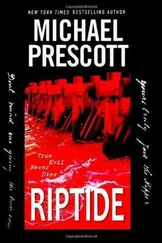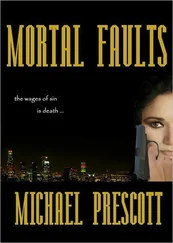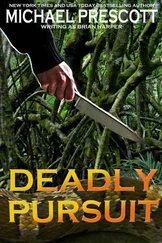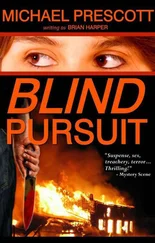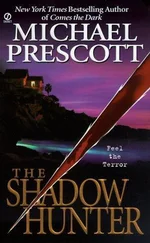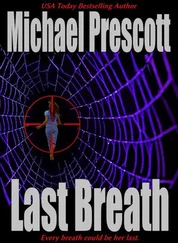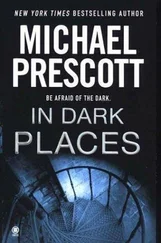Michael Prescott - Shiver
Здесь есть возможность читать онлайн «Michael Prescott - Shiver» весь текст электронной книги совершенно бесплатно (целиком полную версию без сокращений). В некоторых случаях можно слушать аудио, скачать через торрент в формате fb2 и присутствует краткое содержание. Жанр: Триллер, на английском языке. Описание произведения, (предисловие) а так же отзывы посетителей доступны на портале библиотеки ЛибКат.
- Название:Shiver
- Автор:
- Жанр:
- Год:неизвестен
- ISBN:нет данных
- Рейтинг книги:3 / 5. Голосов: 1
-
Избранное:Добавить в избранное
- Отзывы:
-
Ваша оценка:
- 60
- 1
- 2
- 3
- 4
- 5
Shiver: краткое содержание, описание и аннотация
Предлагаем к чтению аннотацию, описание, краткое содержание или предисловие (зависит от того, что написал сам автор книги «Shiver»). Если вы не нашли необходимую информацию о книге — напишите в комментариях, мы постараемся отыскать её.
Shiver — читать онлайн бесплатно полную книгу (весь текст) целиком
Ниже представлен текст книги, разбитый по страницам. Система сохранения места последней прочитанной страницы, позволяет с удобством читать онлайн бесплатно книгу «Shiver», без необходимости каждый раз заново искать на чём Вы остановились. Поставьте закладку, и сможете в любой момент перейти на страницу, на которой закончили чтение.
Интервал:
Закладка:
Delgado identified himself, flipped open his memo pad, and requested the First Officer’s report. Stanton provided essentially the same information Delgado had obtained from Nason and Gray, though in greater detail. Referring to his own notes, he recounted the exact time when he’d been dispatched to the crime scene, the time of his arrival, the time when he called in his report of a 187-PC. PC was the California Penal Code, Section 187 of which covered the crime of homicide. Once the dispatcher had been alerted, Stanton had waited outside the house till Nason and Gray arrived,
Delgado wrote it all down in his neat, elegant script. “Did you touch anything?” he asked finally.
“The door, sir. It was open already, but I pushed on it, just a little, to look in.”
“Nothing else?”
“No, sir.”
“Not the body?”
“No, sir. I know it’s standard procedure to check for a heartbeat. But in this case, it didn’t seem necessary. Sir.”
Delgado allowed himself a smile. “No,” he said mildly. “Not necessary at all.” He snapped his memo pad shut. “Thank you, Stanton. Excellent work.”
The patrolman tried to smile, but his mouth wouldn’t work. His lips seemed wetter than before.
Delgado left him. Then, because he could delay no longer, he walked up the slate path toward the front door of Elizabeth Osborn’s house. From his pocket he removed a small vial containing cotton balls soaked in shaving lotion. He tamped one ball into each nostril.
The door was open, the lights inside still burning. No surprises there. In both previous cases, the killer had left the lights on and the door ajar, inviting the unwary to step inside and inspect his handiwork. One of those who had accepted the invitation was now undergoing psychological therapy; the other was making arrangements to move out of state.
Three brick steps lifted Delgado to the doorway. A tiled foyer carried him into a clean upscale living room. The room was empty, the house vacated until the arrival of the forensics unit.
Breathing through his mouth, Delgado approached the middle of the room, where a woman’s naked body was sprawled supine on the richly stained, mirror-lustrous oak floor in a tangle of limbs. Near it lay a torn and crumpled nightgown.
A yard from the corpse, Delgado stopped. He studied the body. At the corner of his sight wavered a displaced strand of hair, bobbing over his temple. Unconsciously he smoothed it back, blending it with the jet-black skullcap of hair pasted to his scalp. He let his hand slide over the curve of his head to the nape of his neck, where he felt the hard bony knobs of spinal vertebrae. He massaged them slowly.
With a small start he became aware of what he was doing. Irritated, he thrust both hands into his jacket pockets, then briskly closed the distance between himself and death. He squatted, leaning over the corpse. His stomach twisted.
No doubt a youngster like Stanton thought the veteran cops took this kind of thing with equanimity. They did not. Nobody could. Nor did Delgado want to. A man who could look at this horror and feel nothing was a man capable of murder himself.
He steadied himself, then set to work on an examination of the body. Strictly visual. Hands off.
The victim, he estimated, had stood five-four. She was trim, her muscles well-toned. Age? Thirty-four would be a reasonable guess.
Elizabeth Osborn. Had to be.
He looked at her bare feet, the white beds of her toenails. Settled blood bruised the knobs of her ankles. Her naked legs were twisted and splayed. Vaginal swabs, Delgado knew, would reveal traces of semen. This man had his fun with the women he killed.
Slowly his gaze traveled up Elizabeth Osborn’s groin, her belly, her chest. Her skin was darkly livid, mottled in purple. All visible signs of hypostasis indicated that the body had not been moved. Osborn either had fallen or had been dropped on this spot.
With his index finger Delgado touched the skin between her collarbones; it was cool, but not yet stone-cold. Her left forearm had fallen across one of her breasts, as if in a futile gesture of modesty. A Band-Aid encircled her thumb. Perhaps she had cut herself with a kitchen knife. The small detail seemed poignant, the Band-Aid incongruous on this body.
The woman’s right arm lay outstretched on the floor. In that hand, pressed between her fingers, was a small clay statuette.
Delgado had hoped never to see one of those statues again.
Drawing a quick shallow breath, he looked away from the corpse. Suddenly he was tired. He rubbed his eyes, then pressed his fingertips to his high unlined forehead, feeling the hard bone beneath the yielding flesh. He let his hand drop to his cheekbones, high and saturnine, then to his narrow angular chin. He thought of the bony architecture of his face-the zygomatic arch, the maxilla and mandible, the eye sockets and occipitals-terms he’d often used in his analysis of bullet tracks and knife punctures and shattering hammer blows, but which he’d rarely imagined applying to himself. If the skull was the symbol of leering death, he thought randomly, then mortality could be glimpsed in any mirror.
With effort he shook loose of those thoughts. He focused his attention on Elizabeth Osborn’s home, trying to get a feel for the woman’s lifestyle and financial circumstances. Though the house was modest enough-only a single story, perhaps twelve hundred square feet, and hardly new-Delgado knew it had been expensive; in this part of town, even a stucco box like this one would run three hundred thousand dollars and up. Mortgage payments of two grand a month, easily. Either Osborn had been doing well in her real-estate sales or she’d been heavily in debt, living on her credit cards and charge accounts; these days the latter was more likely.
Delgado’s gaze ticked restlessly across the living room. A white oval throw rug, creamy as a puddle of spilled milk, lay on the hardwood floor under a glass cocktail table with chrome-plated legs. Other glass tables were scattered around in an artful illusion of disorder. Glass surfaces, Delgado knew, were unusually receptive to latent prints. There would be plenty of tented arches and radial loops to occupy the Scientific Investigation Division. But whatever prints the evidence technicians found would belong to Elizabeth Osborn, whose fingers would be printed for comparison, or to her boyfriend, if she’d had one, or to a cleaning woman. Somebody. Anybody.
Not the Gryphon.
Pages of a newspaper, probably the L.A. Times, were scattered on a futon flanked by chrome torcheres. Against one wall stood an entertainment center with mirrored doors, holding a twenty-six-inch Magnavox and a Pioneer stereo system. A reproduction of an emakimono, a Japanese watercolor on a horizontal scroll, hung over the fireplace.
The painting and the white walls were spotted with blood. Long slanted splashes like bugs on a windshield.
The stains could have been made when the saw was used, but Delgado didn’t think so. The height and trajectory of the marks looked wrong. No, Osborn had still been upright, struggling wildly, releasing an arterial spray like a hellish lawn sprinkler. A dying person could spasm and convulse as frantically as an epileptic in a grand mal seizure.
Death was everywhere in this room. Delgado could not escape from it. Sighing, he returned his attention to the statue.
It was a small brown figure, unpainted, four inches long, modeled by hand out of self-hardening clay. The work was unsophisticated but far from inept; there had been speculation that the Gryphon might be an art instructor or a professional sculptor, but it was equally likely that he was a talented amateur.
The sculpture he had made was a representation of his namesake, the raptorial bird-beast of Arabian and Greek mythology, a gargoyle-like monster featuring the head and wings of an eagle joined incongruously with the body of a lion. The clay gryphon was posed rearing upright, forelimbs extended, wings folded, beak jutting dangerously forward. It was a pose often given to the heraldic gryphons on medieval shields.
Читать дальшеИнтервал:
Закладка:
Похожие книги на «Shiver»
Представляем Вашему вниманию похожие книги на «Shiver» списком для выбора. Мы отобрали схожую по названию и смыслу литературу в надежде предоставить читателям больше вариантов отыскать новые, интересные, ещё непрочитанные произведения.
Обсуждение, отзывы о книге «Shiver» и просто собственные мнения читателей. Оставьте ваши комментарии, напишите, что Вы думаете о произведении, его смысле или главных героях. Укажите что конкретно понравилось, а что нет, и почему Вы так считаете.

